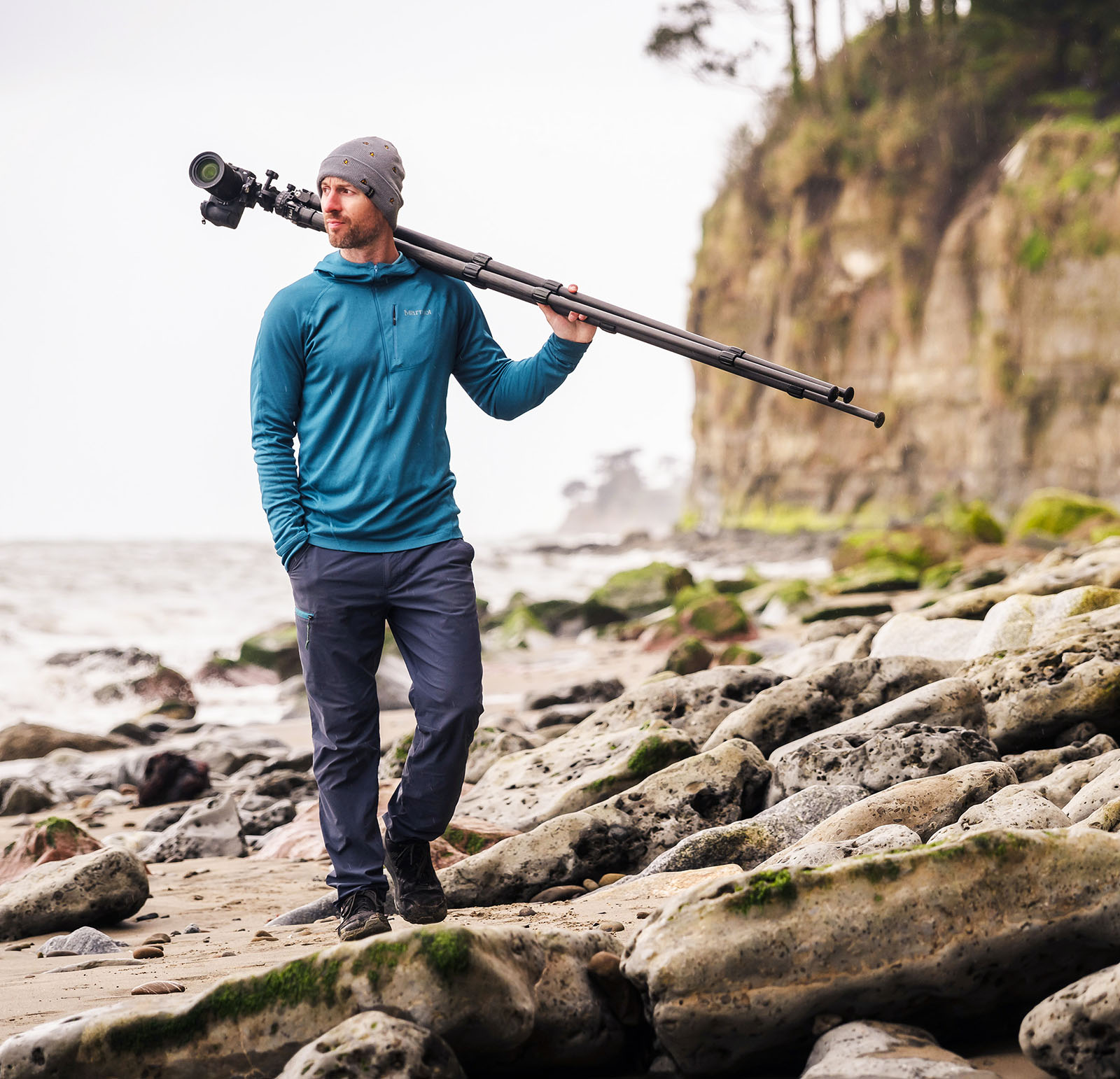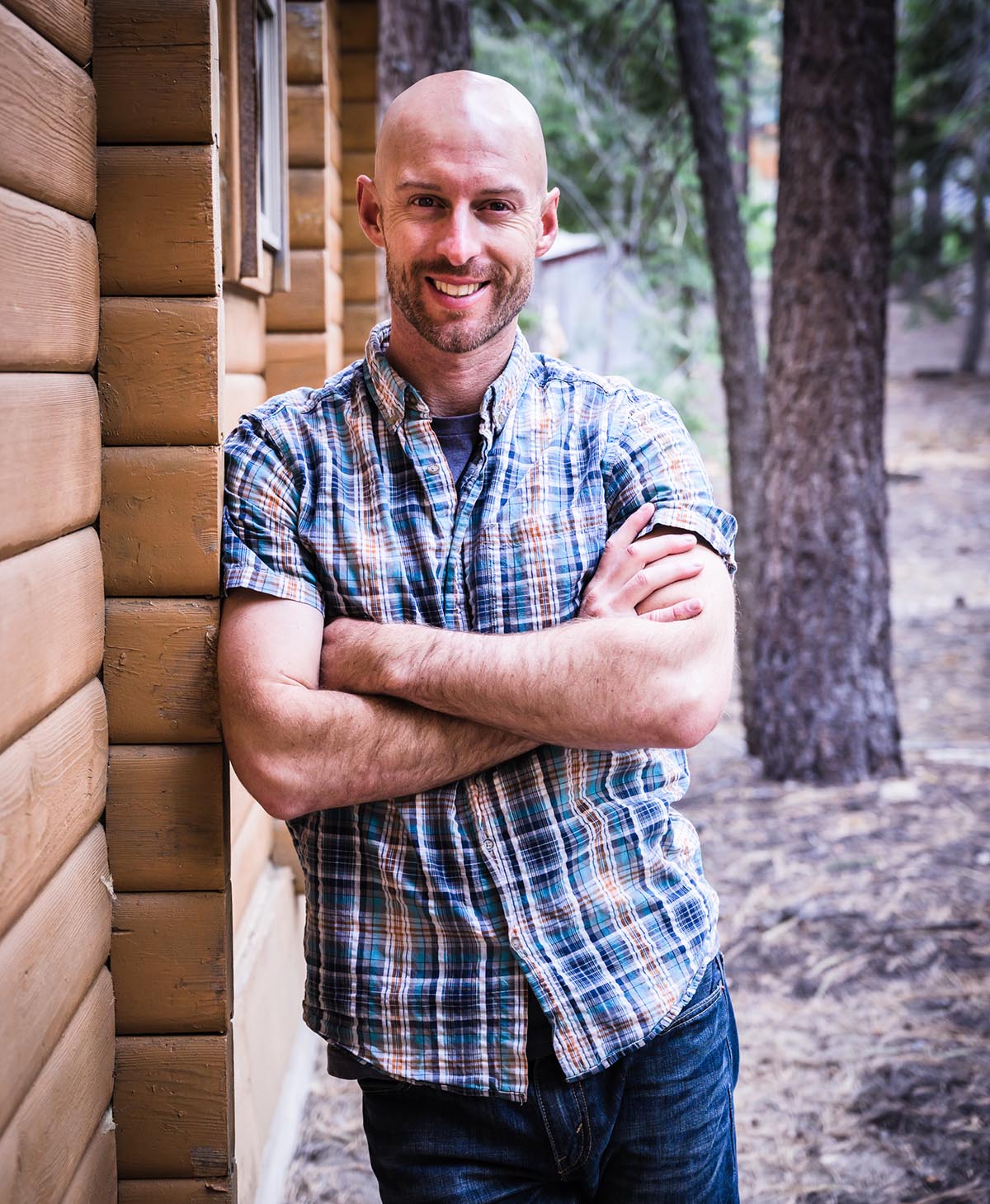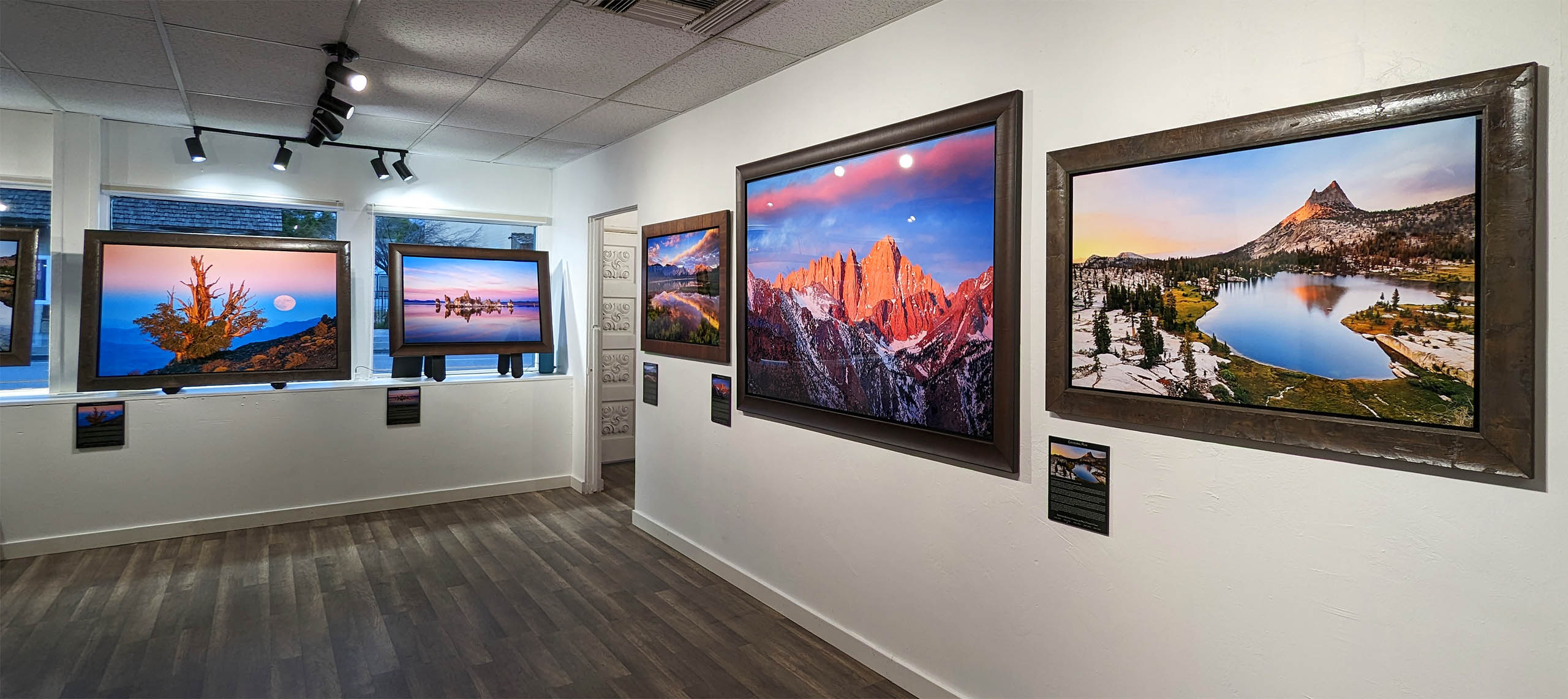I’m a positive guy, not normally prone to complaining. But today I have a bone to pick with all the photographers out there, myself included. It seems that while we continue to push the boundaries when it comes to capturing the world’s beauty in a visual way we’re sacrificing our ability to capture it in a linguistic way. Instead I am seeing an increasing number of wonderful photos paired with the most hum-drum and watered-down “extreme” adjectives such as “spectacular,” “gorgeous,” and the worst offender of them all “epic.” I also want to make it clear that I am as guilty of doing this as anyone.
I suspect we photogs have gone this route due to the fact that our images speak for themselves. After all, why eloquently describe what you saw when someone can look at your photo and see exactly what you did? But I can’t help but think of the times when I don’t have my camera or computer or phone handy to show my friends and family what I saw. And if they can’t see the scene, how else to describe it except via words. And sure I can say “it was an epic sunset” but that’s completely meaningless. That tells me nothing about what the sunset actually looked like. What about the colors, the shapes of the clouds, the quality of the light? I not only want to see the scene through your photo, I want to hear it through your words.
An example of some beautifully descriptive writing I came across a few days ago:
It might have been a vision of the polar regions; it undoubtedly felt like it. The mighty cloud ocean over which we were scudding resembled a polar landscape covered with snow. The round clouds contours might have been the domes of snow-merged summits. It was hard to conceive that that amorphous expanse was not actual, solid. Here and there flocculent towers and ramps heaved up, piled like mighty snow dumps, toppling and crushing into one another. Everything was so tremendous, so vast, that one’s sense of proportion swayed uncontrolled.
Then there were tiny wisps, more delicate and frail than feathers. Chasms thousands of feet deep, sheer columns, and banks extended almost beyond eye-reach. Between us and the sun stretched isolated towers of cumulus, thrown up as if erupted from the chaos below. The sunlight, filtering through their shapeless bulk, was scattered into every conceivable gradation and shade of monotone. Round the margins the sun’s rays played, outlining all with edgings of silver…
If you’re wondering what photographer wrote that, you’ll be disappointed. Those words were written by a pilot named Sir Ross Smith on his groundbreaking London to Australia trip by plane in 1919. And if a pilot can conjure such visions of a landscape, surely we photographers -who spend so much time surrounded by nature’s wonders- can strive to be his equal. So the next time you see an erupting mass of cumulus scattering the sun’s rays into shimmering pinks and scintillating yellows, think of Pilot Ross Smith and his flocculent towers, and write with eloquence.
I’m certainly going to try. What about you?
Leave your thoughts, comments, and ideas down below.


Joshua Cripps is a renowned landscape photographer who has garnered worldwide acclaim for his breathtaking images of our planet’s wild places. His photos have been published by the likes of National Geographic, NASA, CNN, BBC, and Nikon Global.

The Mt. Whitney Gallery was founded in 2023 by Joshua Cripps as a way to share his passion stunning landscapes of the Sierra Nevada and beyond.
Set at the foot of the breathtaking Sierra with a view of the range’s highest peaks, the gallery features large format, museum-caliber fine art prints of Josh’s signature photographs.
Course Login | Results Disclaimer | Terms and Conditions | Privacy Policy
© Copyright – Joshua Cripps Photography

17 Responses
As the other commenters have noted, photographers don’t always do the best job of “selling” their images using words. I know I’ve also been guilty of this. However, over the last several years I have found myself more and more drawn to writing, and my blog has evolved accordingly. There is poetry in imagery as well as in writing; it is fun and relaxing for me to pair the two arts together in a meaningful way.
In fact, I enjoy writing so much, we just published an eBook (“An Honest Silence: A Celebration of Wilderness) this fall that focuses on writing, and photography takes somewhat of a backseat. Check it out!
I like the selection you quoted above–I’d say it goes beyond eloquent and is bordering on purple prose! 🙂
Cheers,
Greg
To contradict a little bit, I’ve always felt the point of a visual art is to “say”, “LOOK!” Maybe photography is a little different, maybe there’s more of wanting to share an experience motivating photographers. Telling a story in words as well would be important then.
I’m thinking of a piece of sculpture that used to sit outside the little art museum where I went to college years ago. It was a box, or series of boxes, mostly rhombus-shaped, painted black. It was called, “Cigarette” and once you read the title, you saw why… But the name didn’t make it resemble a cigarette very closely, nor was it intended to be looked at, really, but to make you look at the forms of other things, and a lot of cerebral et ceteras. To have told a long story would have blocked some of the directions the audience’s minds might have travelled.
I guess I’m saying, if you’re going to have even a short story about your photographs, choose the words carefully, or you’ll spoil the picture.
Bea, well said! I don’t think this contradicts me at all. “Choose the words carefully, or you’ll spoil the picture.” My point exactly. It’s far too commonplace the days for artists to be un-careful about their words, using catch-all terms like epic and gorgeous to describe the scenes they saw.
Excellent point, Josh! I am also guilty as charged. I would add that many photographers descriptions seem to always be about scrambling to get the shot to add excitement to their amazing capture. “Here is an epic shot that I almost missed…”
I do try to put more effort into the description that goes with the image on my website than what I put on the social media sites. There is typically a lot that goes into my memory of making the image than just the image itself. When someone pulls up one of my images in front of me, I normally tell a story to them, just automatically. That is the story I try to include with my images. I pledge to try harder in 2013! Thanks for the motivation to do so!
Excellent, Anne! Glad to hear there’s an innate storyteller in you. As I mentioned to Eric above, the story of a photo can be as important as the photo itself.
As an English literature & creative writing major, and all around wordsmithing geek, I always try to give good descriptions that avoid cliche terms. I also like to give little stories behind each photo, and from the comments I receive, a surprising number really enjoy the story along with the photo.
I admit, sometimes I go the bland route as well, such as “sunset over blah blah blah beach”.
This is a good reminder to redouble our efforts!
Eric, you bring up a great point: people LOVE the stories behind photos. I saw a great talk once that said the history of something is just as important to us as the thing itself. And I believe that people really appreciate reading a well-written story or description of a photo. Just one more thing to help it stand out from the crowd.
Joshua~
I wholeheartedly agree with you that we shouldn’t be complacent in any aspect of our lives – vocabulary is a critical part of how we express ourselves and our work.
However, the adage “A picture is worth a thousand words” speaks to the volume of words needed to replace a picture. 😀
While I believe that picturesque writing was more prevalent at the turn of the 20th century, I doubt it was commonplace.
I also agree that we all should occasionally stop and ponder the vision in front of us, rather than racing to capture as many images as humanly possible, and rushing to post them for everyone to see. So, to use another adage – “Stop and smell the roses!”
Thanks for bringing this up for I am equally guilty of racing, rushing and wearing out “Great shot”, “Excellent” and “Great catch” in describing others work.
A picture is worth a thousand words indeed. Now, I’m not too worried about you complimenting other photographs with short phrases like “great shot” or “nice sunset.” I think that’s totally appropriate. I’m more interested in improving the descriptions of scenes. That is, I’d love to see more photogs describing that sunset they captured rather than just saying “it was epic!”
Joshua – Who has time to read these days, even if u conjure the time and skill to write it. I am not stating that as an excuse (if I did it was very week one). Over the years the way we consume, enjoy and share art has evolved – our attention spans have drastically come down, there is just too much to consume (not sure if to call it positive or negative yet). Yes I do like to read eloquently – on behind the scene of photography that really touched me – that does not mean that every photograph of every photographer needs to be accompanied by one. For me it is all about sharing the feeling, sometime words help, sometime they help a lot and sometimes even the pictures would not suffice …
Agreed. This insane rate of consumption we have as part of our daily lives is doing very little to improve the quality of our interactions.
So sad that attention spans and vocabulary have reduced so much since 1919.
Sorry, what? I was checking Facebook, flickr, and Twitter.
I’ve read some good ones too. I guess I’m guilty of going the other way and writing VERY LITTLE about the shots I take other than where they were taken and what time of day, or how I came to be there. Generally I try and stay clear of anything that pats me on the back. If any patting is to be done, I’d rather others did it. I KNOW I love my work, but its not really my opinion that counts once you put it out there for the world to see. I could be wrong though. But it seems to be the way I do things matey. 🙂
MPA
Hey Michael, thanks for your thoughts. Let me clarify my own thoughts a little bit: I’m talking less about a flowery description of a photo than a good description of the scene within the photo. I’d like to see photographers be more descriptive when talking about our own photos, or scenes we’ve encountered. Saying a sunset was gorgeous or epic tells me, well, that’s it. It doesn’t tell me anything about the actual sunset. Was it orange, red, purple? Were the clouds cirrus, stratus, cumulus? Were there light beams, textures, outlined edges?
I guess ultimately I’m coming at this from the standpoint of what a creative writing teacher might say. Telling me a sunset was beautiful is already forming a conclusion in my head. Instead, tell me that the sunset had undulating streaks of orange and red light lining the bottoms of the clouds, or that the lenticulars were stacked up like luminous pancakes, or that the thunderheads were billowing up like angry cottonballs. Now I can see the scene in my mind’s eye and I’m able to make my own conclusions about its beauty.
The “art” of writing has disappeared from the American landscape with the new technologies that allows our society instantaneous communications. Having to answer one hundred plus emails a day in my real job, I’m equally guilty of the short sentence.
100 emails a day? Yikes! And I thought I had it bad with a couple dozen. I can hardly blame you for not wanting to write otherwise.